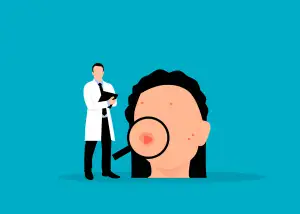Unveiling the Pica Puzzle: Understanding the Compulsion to Eat Chalk Disorder for Optimal Health

- Understanding the symptoms and causes of the disorder
- The potential health risks associated with consuming chalk
- Diagnosis and treatment options for individuals with the disorder
- Tips for managing cravings and finding healthier alternatives
- Support and resources available for individuals and their loved ones
- Promoting awareness and reducing stigma surrounding eating chalk disorder
Eating chalk disorder, also known as pica or geophagy, is a rare and complex eating disorder characterized by an intense craving and compulsion to consume non-food substances such as chalk. While it may seem unusual to some, this disorder affects individuals of all ages and backgrounds. Understanding the underlying causes, potential health risks, and available treatment options is crucial for supporting those affected by this condition. In this article, we will delve into the intricacies of eating chalk disorder and explore ways to promote optimal health for individuals living with this compulsion.
Understanding the symptoms and causes of the disorder
Understanding the symptoms and causes of eating chalk disorder is crucial in order to provide appropriate support and treatment. Individuals with this disorder often experience an intense craving or compulsion to consume chalk or other non-food substances. This compulsion can be difficult to control and may lead to frequent consumption of chalk.
The exact cause of eating chalk disorder is still unknown, but it is believed to be related to a combination of genetic, environmental, and psychological factors. Some studies suggest that certain deficiencies in nutrients like iron or zinc may contribute to the development of this disorder. Additionally, individuals with underlying mental health conditions such as obsessive-compulsive disorder (OCD) or pica disorder may be more prone to developing a compulsion for consuming non-food items like chalk.
Symptoms of eating chalk disorder can vary from person to person, but common signs include constantly thinking about consuming chalk, experiencing cravings that are difficult to resist, feeling a sense of relief or satisfaction after consuming chalk, and experiencing distress or guilt afterwards. It's important to note that these symptoms must persist for a significant period of time and cause significant impairment in daily functioning in order for a diagnosis to be made.
By understanding the symptoms and potential causes of eating chalk disorder, we can work towards providing better support and treatment options for individuals affected by this condition.
The potential health risks associated with consuming chalk
Consuming chalk may seem harmless, but it poses several potential health risks. Chalk is primarily composed of calcium carbonate, which is not meant for human consumption. Ingesting large amounts of chalk can lead to gastrointestinal issues such as constipation, abdominal pain, and bloating. It can also interfere with the body's ability to absorb essential nutrients, leading to deficiencies in vitamins and minerals. Prolonged exposure to chalk can damage tooth enamel and increase the risk of dental problems. Additionally, some types of chalk may contain impurities or contaminants that could further compromise health. It is crucial to understand these risks and seek appropriate help if you or someone you know is struggling with eating chalk.
Diagnosis and treatment options for individuals with the disorder
Diagnosis of eating chalk disorder can be challenging as it is not widely recognized or understood. However, a thorough evaluation by a healthcare professional is crucial. They may conduct a physical examination, review medical history, and order blood tests to rule out any underlying conditions.
Treatment options for individuals with the disorder typically involve a multidisciplinary approach. This may include therapy sessions with a mental health professional to address any underlying psychological factors contributing to the compulsion. Cognitive-behavioral therapy (CBT) has shown promising results in helping individuals identify triggers and develop healthier coping mechanisms.
In some cases, medication may be prescribed to manage any associated anxiety or other mental health conditions. It is important for individuals to work closely with their healthcare team to find the most effective treatment plan tailored to their specific needs.
Support groups and peer counseling can also play a vital role in recovery. Connecting with others who have experienced similar challenges can provide encouragement, understanding, and practical advice on managing cravings and finding healthier alternatives.
Remember, seeking help is not a sign of weakness but an important step towards optimal health and well-being. With proper diagnosis and access to appropriate treatment options, individuals with eating chalk disorder can regain control over their lives and develop healthier habits for long-term recovery.
Tips for managing cravings and finding healthier alternatives
1. Identify triggers: Pay attention to what triggers your cravings for chalk. Is it stress, boredom, or certain situations? Once you identify the triggers, you can find healthier ways to cope with them.
2. Distract yourself: When a craving strikes, distract yourself with a different activity or hobby. Engage in something that keeps your mind occupied and away from the urge to eat chalk.
3. Find healthier substitutes: Instead of consuming chalk, try finding healthier alternatives that provide similar textures or tastes. Consider chewing on sugar-free gum, eating crunchy vegetables like carrots or celery sticks, or enjoying a piece of dark chocolate.
4. Stay hydrated: Dehydration can sometimes trigger cravings for unusual substances like chalk. Make sure you drink enough water throughout the day to stay properly hydrated and reduce the intensity of cravings.
5. Seek professional help: If managing your cravings becomes challenging, don't hesitate to seek professional help from a healthcare provider or therapist who specializes in eating disorders. They can provide guidance and support tailored to your specific needs.
Remember, managing cravings takes time and patience. Be kind to yourself during this process and celebrate small victories along the way as you work towards finding healthier alternatives for optimal health and well-being.
Support and resources available for individuals and their loved ones
Support and resources are available for individuals with eating chalk disorder and their loved ones. It is important to seek professional help from a healthcare provider or mental health specialist who can provide guidance and support. Support groups, both in-person and online, can also be beneficial as they offer a safe space to share experiences and connect with others facing similar challenges. Additionally, there are various organizations and websites dedicated to providing information, education, and resources for individuals affected by this disorder. Remember, you are not alone in this journey, and reaching out for support can make a significant difference in your overall well-being.
Promoting awareness and reducing stigma surrounding eating chalk disorder
Promoting awareness and reducing stigma surrounding eating chalk disorder is crucial for creating a supportive environment for individuals affected by this condition. By educating the public about the disorder, we can help dispel misconceptions and foster empathy. It is important to remember that this compulsion is a real medical condition and not a choice. Let's encourage open dialogue, understanding, and compassion towards those who struggle with eating chalk. Together, we can break the stigma and provide a safe space for individuals to seek help and support.
In conclusion, it is crucial to approach individuals with eating chalk disorder with compassion and understanding. This compulsion is a complex condition that can have significant impacts on a person's physical and mental well-being. Rather than stigmatizing or judging those affected, we should strive to provide support and empathy.
By educating ourselves about the disorder, we can help break down the barriers of misunderstanding and promote acceptance. It is essential to remember that individuals with this disorder are not choosing to consume chalk; it is an uncontrollable compulsion driven by underlying factors.
Creating a safe and non-judgmental environment for individuals with eating chalk disorder is vital. This includes providing access to appropriate medical care, therapy, and support groups. Additionally, loved ones can play a crucial role in offering emotional support and understanding during the recovery process.
Let us work together to raise awareness about eating chalk disorder and reduce the stigma surrounding it. By fostering compassion and empathy, we can create a more inclusive society where those affected feel supported rather than isolated. Together, we can make a difference in the lives of those struggling with this challenging disorder.
Published: 02. 02. 2024
Category: Health



